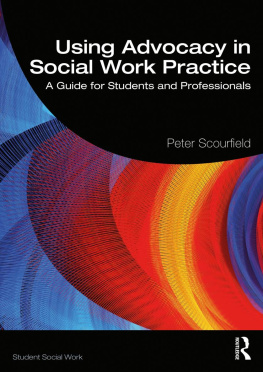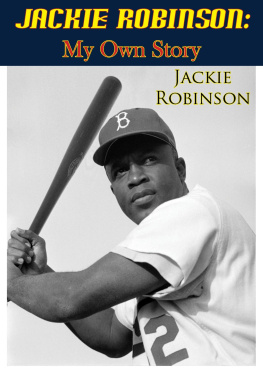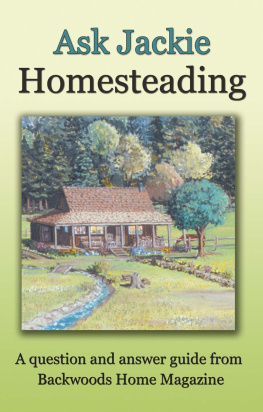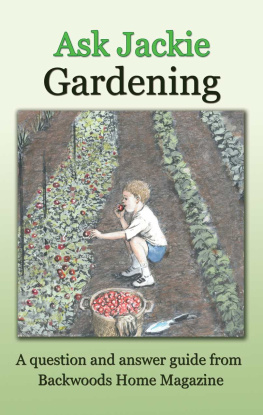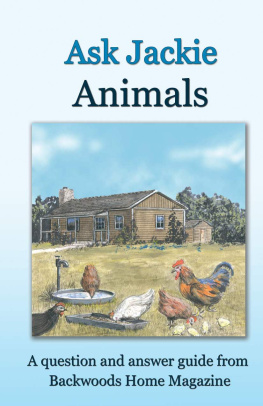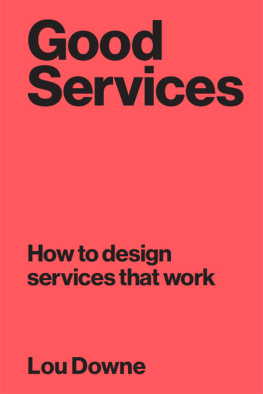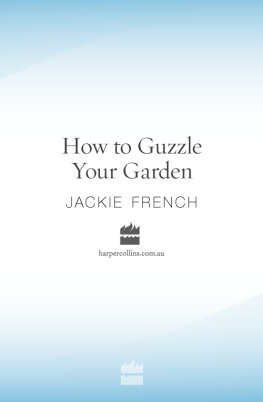
MAKING PARTNERSHIPS WITH SERVICE USERS AND ADVOCACY GROUPS WORK
of related interest
A Practical Guide to Delivering Personalisation
Person-Centred Practice in Health and Social Care
Helen Sanderson and Jaimee Lewis
ISBN 978 1 84905 194 1
eISBN 978 0 85700 422 2
Mental Health, Service User Involvement and Recovery
Edited by Jenny Weinstein
ISBN 978 1 84310 688 3
eISBN 978 0 85700 212 9
Hearing the Person with Dementia
Person-Centred Approaches to Communication for Families and Caregivers
Bernie McCarthy
ISBN 978 1 84905 186 6
eISBN 978 0 85700 499 4
Person Centred Planning and Care Management with People with Learning Disabilities
Edited by Paul Cambridge and Steven Carnaby
ISBN 978 1 84310 131 4
eISBN 978 1 84642 140 2
Person-Centred Dementia Care
Making Services Better
Dawn Brooker
ISBN 978 1 84310 337 0
eISBN 978 1 84642 588 2
Bradford Dementia Group Good Practice Guides series
Enriched Care Planning for People with Dementia
A Good Practice Guide to Delivering Person-Centred Care
Hazel May, Paul Edwards and Dawn Brooker
ISBN 978 1 84310 405 6
eISBN 978 1 84642 960 6
Bradford Dementia Group Good Practice Guides series
Co-Production and Personalisation in Social Care
Changing Relationships in the Provision of Social Care
Edited by Susan Hunter and Pete Ritchie
ISBN 978 1 84310 558 9
eISBN 978 1 84642 721 3
MAKING PARTNERSHIPS WITH SERVICE USERS AND ADVOCACY GROUPS WORK
How to Grow Genuine and Respectful Relationships in Health and Social Care
Julie Gosling and Jackie Martin
Jessica Kingsley Publishers
London and Philadelphia
First published in 2012
by Jessica Kingsley Publishers
116 Pentonville Road
London N1 9JB, UK
and
400 Market Street, Suite 400
Philadelphia, PA 19106, USA
www.jkp.com
Copyright Julie Gosling and Jackie Martin 2012
All rights reserved. No part of this publication may be reproduced in any material form (including photocopying or storing it in any medium by electronic means and whether or not transiently or incidentally to some other use of this publication) without the written permission of the copyright owner except in accordance with the provisions of the Copyright, Designs and Patents Act 1988 or under the terms of a licence issued by the Copyright Licensing Agency Ltd, Saffron House, 610 Kirby Street, London EC1N 8TS. Applications for the copyright owner's written permission to reproduce any part of this publication should be address to the publisher.
Warning: The doing of an unauthorized act in relation to a copyright work may result in both a civil claim for damages and criminal prosecution.
Library of Congress Cataloging in Publication Data
Gosling, Julie, 1950-
Making Partnerships with Service Users and Advocacy Groups Work : how to grow genuine and respectful relationships in health and social care / Julie Gosling and Jackie Martin
p. cm.
Includes bibliographical references and index.
ISBN 978-1-84905-193-4 (alk. paper)
1. Social serviceGreat BritainPlanningCitizen participation. 2. Health planningGreat BritainCitizen participation. 3. Social advocacyGreat Britain. 4. Public-private sector collaborationGreat Britain I. Martin, Jackie, 1959- II. Title.
HV245.G664 2012
361.941068--dc23
2011042567
British Library Cataloguing in Publication Data
A CIP catalogue record for this book is available from the British Library
ISBN 9781849051934
eISBN 9780857006080
Printed and bound in Great Britain
ACKNOWLEDGEMENTS
JULIE
I deeply and humbly give thanks to Gina Hardesty, Mark Lymbery, Jackie Martin, Dave Milburn, Ian Nesbitt, Michael Preston Shoot, Reshma Patel, June Sadd and Jenny Weinstein, true allies over the years who have understood and demonstrated in a variety of ways an active commitment to the practice and principles of enabling partnerships within professional publications and media productions. And I am more than forever grateful to so many dear colleagues and partners of Advocacy In Action, past and present, and additionally members of The Long Distance Gang and the Older Peoples Partnership Services (OPPS) without all of these loyal friends and collaborators, my own personal contribution amounts to very little.
I dedicate my work to Corncrake Sean a free and noble spirit.
JACKIE
I wish to acknowledge the unswerving support of my family and friends. I dedicate this book to them with love.
With special thanks to Fade and the Hard to Find Cafe in Nottingham where we found inspiration, good coffee, a warm welcome and spent many hours writing this book together!
INTRODUCTION
PARTNERSHIPS AND GROWING SPACES
As the book unfolds you will come to know some very different partnerships. Their stories are interwoven throughout, describing celebration, frustration, trust, hope, anger, joy, feelings of connectedness or separation, of belonging but also of not belonging. The partners tell their stories to let others learn from their experience. The partnerships themselves tell you what has worked well and not so well and what makes a good partnership, but also what points to poor partnership.
This collection of narratives seeks to explore the nature of partnership and to define the conditions that enable people to come together in honest, fair and creative allegiances. It is important that you familiarise yourself with all the partnerships discussed in this book (see p.17 for more details on the individual partnerships) before going on to read the rest of the text.
Julie
It is true that these days the word partnership is used at every opportunity. We use it, I suppose, to try and make positive steps towards other people. I guess its an attempt to try and redress power imbalances. But I am beginning to realise that increasingly its becoming a way of getting people to comply and cooperate. I am beginning to feel very worried about words such as partnership and involvement. What do they truly mean? What sort of arrangements between human beings do they describe? I want to be careful about where and when I use the word partnership in future.
Some years ago, I received a telephone call from a local authority training officer. She informed me that as part of her departments commitment to partnership she was able to offer me a free place on a course entitled Person-Centred Planning and Service User Empowerment. I thanked her good-humouredly and said I was one of the people who had been active in the early 1990s in pioneering the new concepts of person-centred values and practice, and had since taught them at undergraduate, post-graduate and post-qualifying (PQ) levels in universities across the UK and Europe! There was a few moments silence, and then she responded, Yes, but we want to empower you! Surely youd like to take advantage of our knowledge and skills thats what involvements about, isnt it? I politely refused her invitation and I thought back to our radical ideas of the 1990s and wondered what had become of them.


